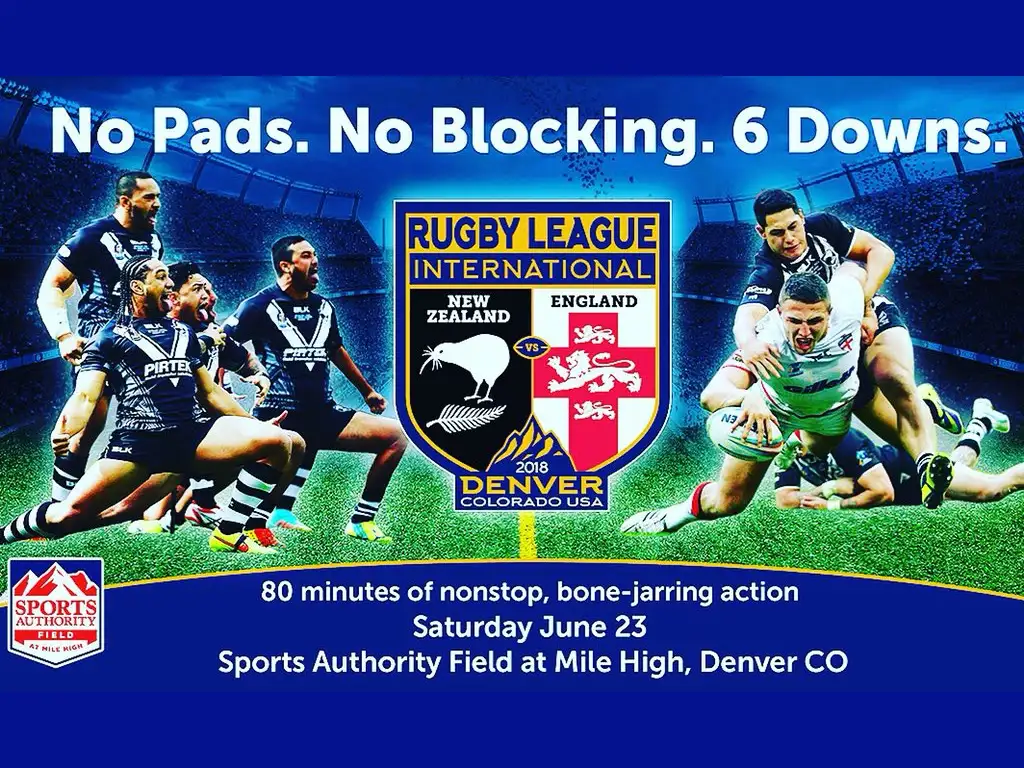One step forward, two steps back: Denver squabble typical of rugby league

It’s no surprise that a sport born out of a breakaway continues to be broken by in-fighting 123 years later.
By the time you read this, there will no doubt have been further twists in the tail that is the Denver test match between England and New Zealand.
It’s a bold move to take a game to the USA, seen as a pre-cursor to the planned World Cup there in 2025, all of which has been left if only in a little doubt due to the NRL’s apparent refusal to rubber-stamp the game and release players from its clubs to make the trip.
That means the likes of Sam Burgess, James Graham and Gareth Widdop would have to effectively go against the wishes of their employers to play, while virtually the whole Kiwi side wouldn’t be permitted.
There have been noises that maybe two line-ups of largely Super League based players would be an alternative, but that would be underwhelming.
Given that there are only two professional leagues in the whole world, and barely 30 full-time teams, it perhaps would have made more sense to ensure that agreements were in place before the test match was announced.
Worries over injuries and potential compensation for affected NRL clubs appear to have been eased by medical advice and insurance provision, though still approving support from Down Under has not been forthcoming.
Regardless of your opinion of the Australian and NRL stance on this, you can’t blame the best country, with the biggest league, the most money and the greatest player pool for wanting to look after their assets, whether that is the best thing for rugby league in general or not.
The spineless nature of the RLIF and its lack of authority, notably over the NRL, means we are never likely to get to a point where international rugby league takes precedence, unless NRL chiefs surrender their power.
With only one employee in the RLIF and not much behind it money-wise, the NRL are understandably hesitant.
While the RFL’s efforts to expand the game are admirable, they’ve hardly got the greatest success rate.
Expansions attempts in Paris, Gateshead and Wales have all failed, while even the most successful effort in Catalans is starting to stall, that’s if you can call going to the French heartlands for an additional team expansion.
Even the heartlands’ beneficiary of the licensing system, Widnes, posted their lowest Super League crowd ever against Salford last week.
There’s Toronto Wolfpack who, although enjoying a successful first year, only play in Canada across barely three months of the year and it is going to be a decade at least until their success can be realistically judged in terms of its overall impact on rugby league.
Call me anti-expansionist, but it doesn’t seem like the greatest time to be trying to expand the game via internationals or otherwise, when domestically we don’t even know what the league structure is going to be next season.
What hope is there of attracting new fans and sponsors in new areas, when there is infighting amongst clubs and fans of existing clubs who can’t agree on the best format for the bread and butter of the sport, let alone anything else.
The other thing is that it is all speculation that playing games in the USA will result in big TV deals, big cash sponsors and more. There’s no proof that will happen. Rugby union is struggling to break in to America, despite their enviable resources.
Meanwhile, in this country, there are now three top flight ice hockey clubs that average bigger crowds than a quarter of Super League clubs – and that’s with them playing twice as many home games a season. That’s a sport that gets no central funding and where clubs have to generate their own money via sponsorship and their fanbase; off the back of roughly a £400,000 salary cap spend each season.
Either way, as all the in-fighting continues – domestically and internationally – rugby league continues to stall and take for granted fans, players and sponsors it already has for granted.
If they start to walk away, what then?